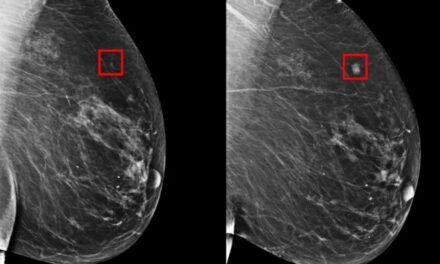A comprehensive examination of millions of patient visits to primary care physicians has revealed a rising complexity in mental health concerns, ranking second only to musculoskeletal complaints in daily care. A significant portion of patients—one in nine—sought primary care primarily for mental health-related issues, highlighting the crucial role of primary care physicians as frontline healthcare providers in addressing mental health challenges.
The study, led by Avshalom Caspi, the Edward M. Arnett Professor of Psychology and Neuroscience at Duke University, analyzed more than 350 million primary care visits involving 4.8 million people from January 2006 to December 2019. These visits were recorded under Norway’s socialized healthcare system, providing a comprehensive view of the types of health concerns primary care physicians encounter regularly. The findings were published in the September 19 issue of Nature Mental Health.
“The primary care physician data allows us to actually see people at their first contact with the healthcare system,” Caspi stated, emphasizing that mental health concerns accounted for 12% of the 350 million visits. This amounted to more than 40 million mental health-related consultations during the study period, underscoring the frequency and significance of mental health concerns in everyday primary care practice.
Mental Health Prevalence in Primary Care
Mental health complaints, including depression, anxiety, sleep disturbances, and stress, were nearly as common as respiratory and cardiovascular issues. Other concerns included memory problems, substance abuse, ADHD, post-traumatic stress disorder (PTSD), eating disorders, psychosis, and suicidal thoughts. The data also demonstrated that mental health concerns affected people across all age groups, with the prevalence peaking among individuals in their 40s, where one in five visits to primary care physicians involved mental health issues.
“A primary care physician, on any given day, is going to encounter mental health issues in pediatric patients, in geriatric patients, and among middle-aged adults,” Caspi noted. He also expressed his concern over the growing complexity of mental health conditions being managed in primary care settings, stating that “without targeted efforts to expand mental health services within the primary care setting, the medical system will not meet the mental health needs of those it serves.”
A Call for Better Integration of Mental Health Services
The study highlights the need for better integration of mental health professionals within primary care settings to alleviate the burden on physicians. Caspi advocated for a “warm handoff” model, where patients with mental health concerns could be immediately referred to an in-house mental health specialist. This approach has been successfully implemented by the Veterans Administration (VA), and some U.S. institutions, including Duke University, have already adopted similar models.
However, challenges remain. Malinda Teague, an assistant clinical professor at Duke School of Nursing, noted that embedded mental health clinicians in primary care are often overwhelmed, unable to meet the high demand for their services. Teague also pointed to systemic issues in pediatric care, where despite recommendations for routine depression screenings for children aged 12 and up, such screenings are often bypassed in favor of addressing more immediate physical concerns due to time constraints and fee-for-service models.
The Global Implications
Though the study is based on data from Norway—one of the wealthiest nations with socialized healthcare—the insights are valuable for healthcare systems worldwide. The rising demand for mental health care within primary settings has implications for healthcare models globally, particularly in countries like the U.S., where time constraints and a fragmented healthcare system often make it difficult to adequately address mental health needs in primary care visits.
Caspi urged patients to be proactive in discussing mental health concerns with their doctors, emphasizing that primary care physicians are increasingly familiar with these issues. “Don’t be shy,” he encouraged. “Because they are seeing this a lot.”
As the global mental health crisis continues to unfold, this study highlights the growing need for integrated mental health care within primary care, ensuring that patients receive timely and appropriate care for their mental health alongside physical health.
Journal Reference
Caspi, A., et al. (2024). A nationwide analysis of 350 million patient encounters reveals a high volume of mental-health conditions in primary care. Nature Mental Health. doi.org/10.1038/s44220-024-00310-5.












